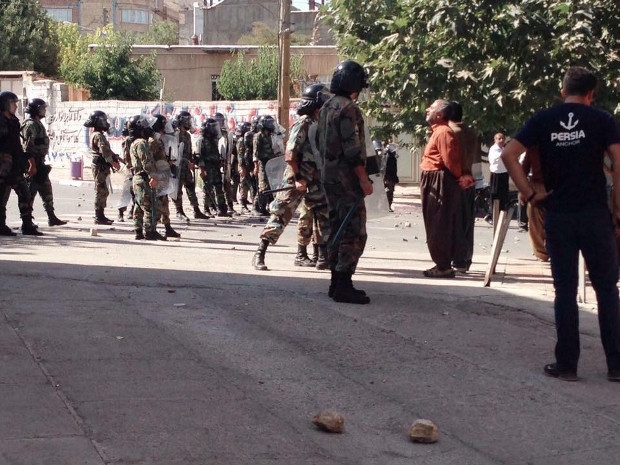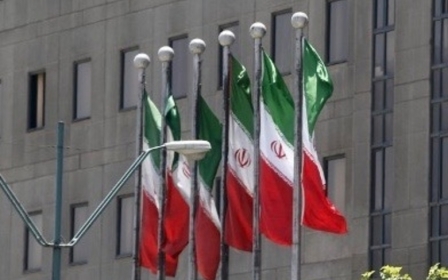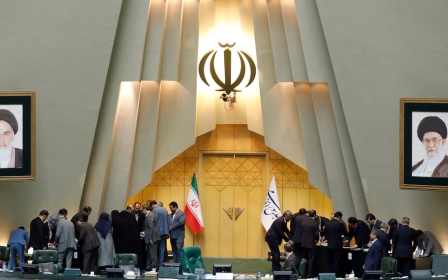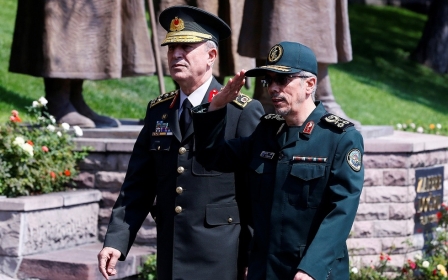Revenge killings follow shooting of border couriers in Iranian Kurdistan

Clashes have broken out in Iran's Kurdish region following the killing of two couriers by border guards.
Ghader Bahrami and Heydar Faraji were shot dead on Monday near the town of Baneh on the border with Iraq, after crossing the border with Iraqi Kurdistan.
According to the Kurdistan24 news site, a local official justified the shooting, claiming they were “smugglers, carrying dangerous goods," though the Kurdistan Human Rights Network has disputed this, claiming they were not carrying any goods.
The killings sparked off mass demonstrations in Baneh, the cities of Serdest and Merivan and elsewhere in Iran. Residents closed shops and stopped driving cars in protest at the killings, as well as against the subsequent arrests of activists.
On Tuesday, fighters from the Free Life of Kurdistan (PJAK), a militant group affiliated to the Kurdistan Workers Party (PKK), shot dead two Iranian soldiers, and injured two more, at a border outpost in retaliation for the killings.
The affiliated East Kurdistan Democratic and Free Society (KODAR) released a statement calling for continuous demonstrations against the Islamic Republic.
“We support the demands of the people of Baneh, Serdest and Merivan," they said in a statement on Tuesday. "We call all Kurds to support the people of Baneh, Serdest and Merivan.”
The PKK-linked Firat News Agency said locals in Merivan on Wednesday reported "one Iranian soldier standing in every 10 metres of main streets of the city".
It reported that shops remained closed and "only military vehicles" could be seen on the streets. The agency accused the Islamic Republic of deploying "thousands" of soldiers to the region in order to "prevent a popular uprising".
Kurdish minority repressed
Border couriers, referred to locally as kulbaran, are regularly attacked, intimidated and killed by the Iranian authorities.
The Kurdistan Human Rights Association of Iran-Geneva reported that in 2016, Iranian border security forces killed 51 kulbaran and injured 71 others. This figure was almost double those killed in 2015.
In a report released in March, Asma Jahangir, the UN special rapporteur-designate for human rights in Iran, specifically highlighted the killing of kulbaran as well as the persecution of Kurdish political activists.
“Almost one-fifth of the executions that took place in Iran in 2016 concerned Kurdish prisoners,” she said in the report.
“Among those executions, 21 were related to the crime of moharebeh (serious offences, caused by a lethal weapon) and one to the membership in a Kurdish political party.
“Kurdish political prisoners are said to represent almost half of the total number of political prisoners in Iran."
There are thought to be more than six million Kurds in Iran, the second largest regional distribution after Turkey.
As an ethnic group, they have been repressed under both the Persian monarchies and the Islamic Republic.
New MEE newsletter: Jerusalem Dispatch
Sign up to get the latest insights and analysis on Israel-Palestine, alongside Turkey Unpacked and other MEE newsletters
Middle East Eye delivers independent and unrivalled coverage and analysis of the Middle East, North Africa and beyond. To learn more about republishing this content and the associated fees, please fill out this form. More about MEE can be found here.




